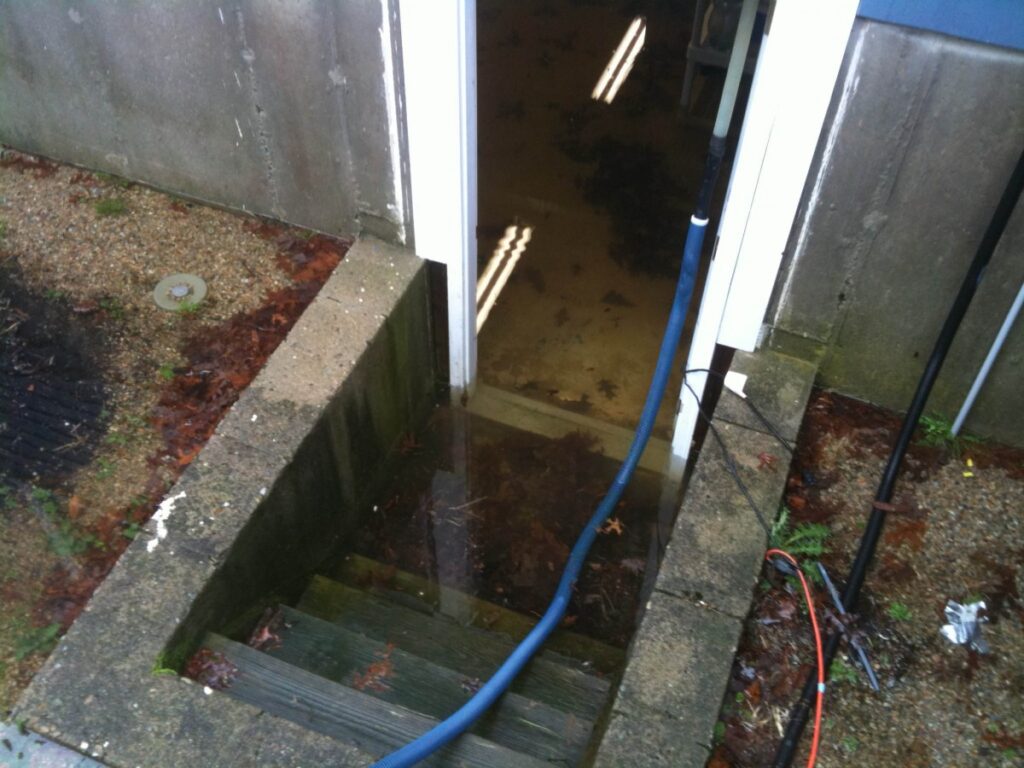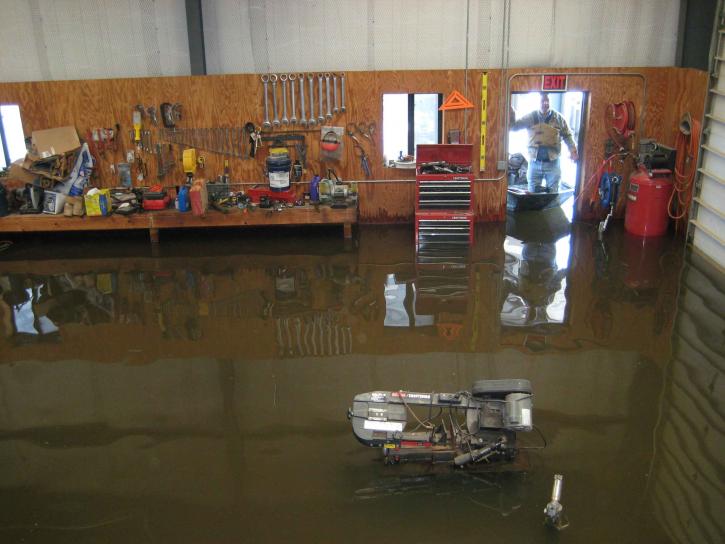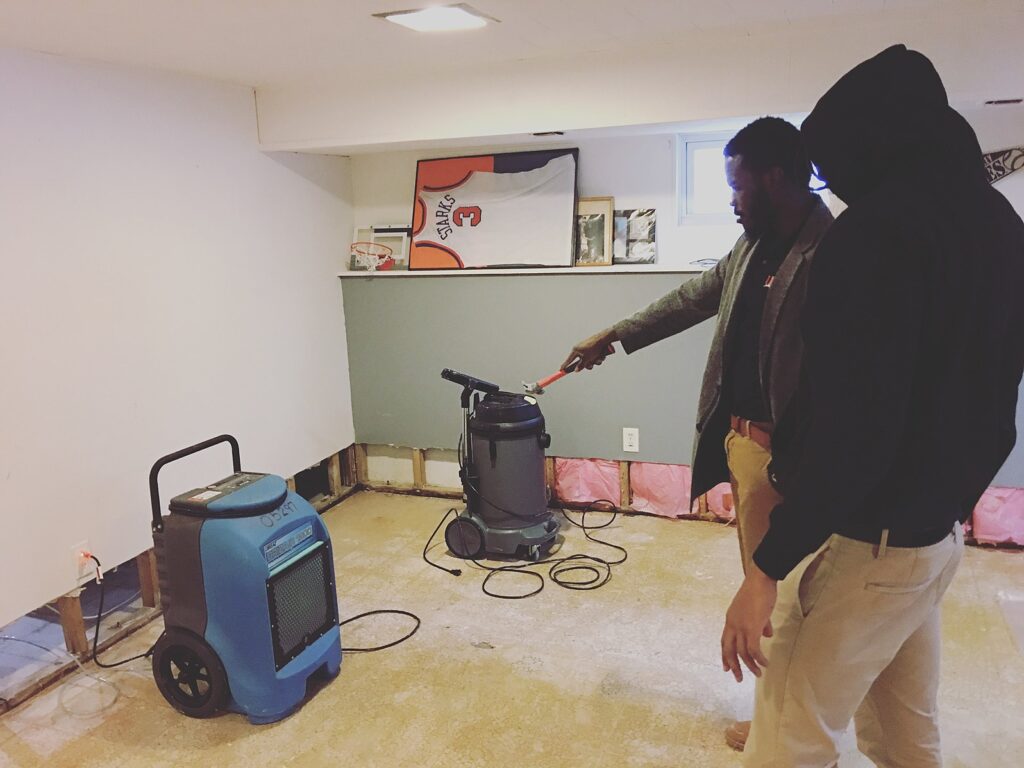Water damage is difficult to prepare for because it happens without warning. It can be due to the weather, a breakdown of your home’s infrastructure, or something as simple as a backed-up drain.
(For those familiar with “Home Alone,” it could also be the result of the Wet Bandits robbing your home.)
Whatever the cause, the first consideration will be the safety of you and your loved ones. Then, your belongings.
Responding to water damage is stressful. Knowing the risk of your situation by identifying the damage classification will help you make an informed decision about your best course of action.
When dealing with a water damage emergency, it’s important to take decisive action. Acting fast ensures your belongings and home have the best chance of coming away from the disaster with minimal lasting effects.
Water damage isn’t stagnant–with each moment that passes, the risk of further damage increases. Wet property and belonging provide a fertile ground for mold growth, which places the health of you and your family at additional risk.
There are two ways to measure the extent of the damage: the volume of water and the type of water present.
Identifying the type of water causing the damage is the first step to getting your property back to its previous condition.

Category 1 water damage is caused by clean water from your home’s plumbing system, or by water provided by mother nature during storms or floods.
Clean water has the lowest risk factor, provided it’s dealt with within the first 24-48 hours.
Category 2 water damage poses more danger than category 1. Greywater is wastewater without fecal matter and often has chemicals present, such as from a dishwasher or washing machine.
Greywater has an increased risk because bacteria are already present. Given time, these bacteria can grow and cause significant health risks.
Category 3 water damage is the most dangerous type of water damage. Blackwater contains contaminants such as fecal matter or grease and can come from backed-up toilets or sewage systems.
Exposure to blackwater poses a high risk of infection. Category 3 damage requires water damage restoration experts to manage the situation effectively.

When faced with a water disaster, the first step is to determine the category of the damage. If category 3, contact restoration experts immediately.
If the damage is category 1 or 2, get yourself and your family to safety if it seems out of control. Only then is it advisable to try and move whatever belongings you can manage. Be mindful of wet belongings; these have a high potential for mold growth.
If possible, try and locate the source of the damage and contain it to the best of your abilities. Containment could be a bucket or waterproof tape. Again, this is only if the damage is category 1 or 2.
Waiting to clean up damage from water puts the health of everyone occupying the property at risk.
Even if the damage isn’t category 3–and therefore doesn’t pose an immediate threat–not dealing with soaked property is a recipe for mold growth.
Unaddressed damage can change categories quickly. Acting fast will help prevent more lasting damage to your property.
For restoration purposes, these sources pose the same challenges.
The difference comes when dealing with insurance. Most homeowner’s insurance doesn’t cover flood damage. If you live in an area with a high likelihood of floods, a separate insurance plan for floods is required.
When reporting your water damage to your insurance company, make sure you clarify the source so you can get as much help as possible returning your property to its previous state.

Severe damage requires industrial-grade equipment to be dealt with appropriately. Professional oversight will ensure the safety of you, your family, and your belongings are all taken into consideration.
Water damage restoration experts use both the volume of water present and the category of damage to develop a custom restoration plan for your particular situation.
The first step is giving them a call. Only then can the process of getting your life back to normal as soon as possible begin.
A water damage restoration expert will help you navigate the insurance situation. They will provide clean-up services and protect your property from further damage.
Since time can cause damage to change categories, it’s imperative you act fast when a water damage emergency occurs.
Anyone in the Houston area who has experienced water damage in the past and wants to ensure it’s been appropriately dealt with, contact us and we’ll send a water damage expert to your home to assess your situation.
*If you live in the Houston area and experience water damage, give us a call. Someone will answer 24 hours a day, and we will have someone on-site ASAP.